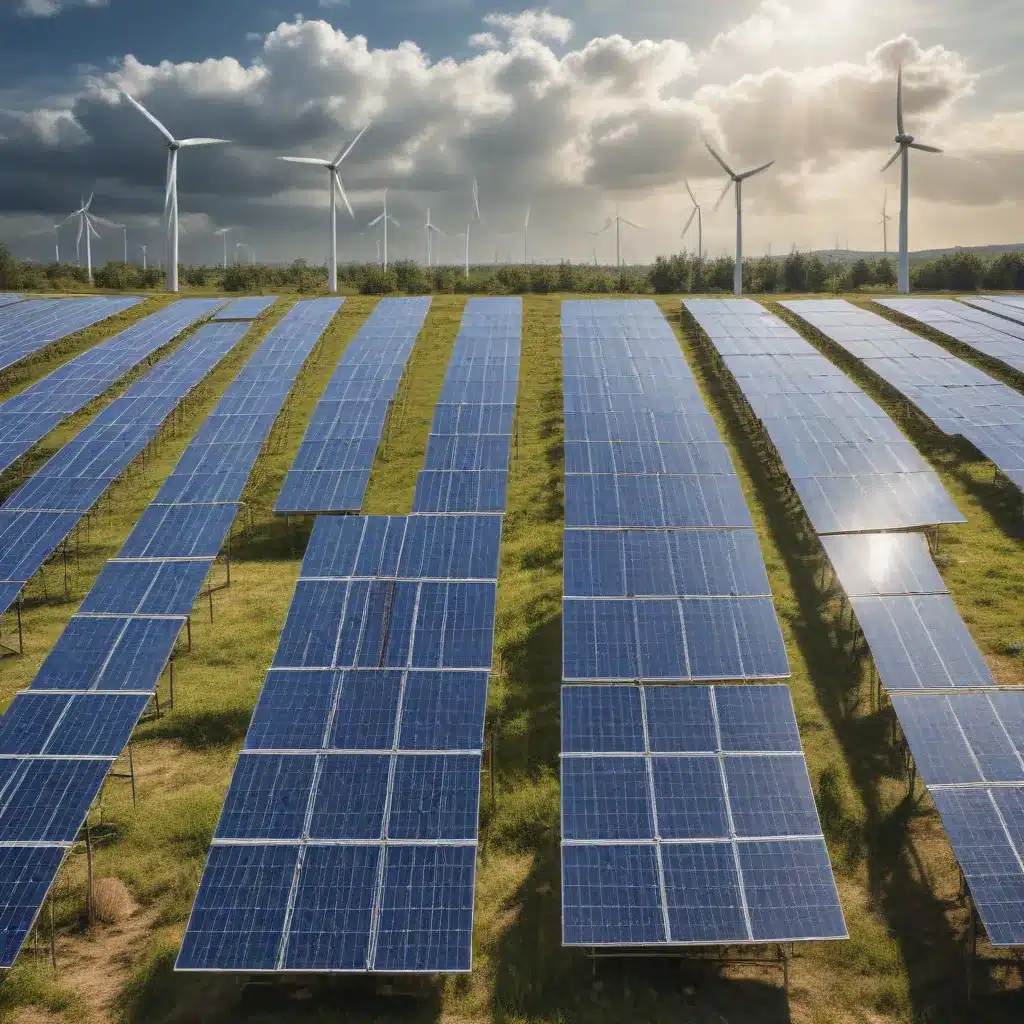
Harnessing the Power of AI for a Sustainable Energy Future
In the quest for a cleaner, greener planet, artificial intelligence (AI) is emerging as a powerful ally in revolutionizing the renewable energy sector. As the world shifts towards sustainable energy sources, AI is playing a pivotal role in enhancing the efficiency, reliability, and integration of renewable energy systems.
Optimizing Energy Generation and Asset Performance
One of the key areas where AI is making a significant impact is in improving the performance and efficiency of renewable energy systems. AI-powered algorithms can analyze vast amounts of data, including weather patterns, energy demand, and system performance metrics, to optimize the output of solar panels, wind turbines, and other renewable energy assets.
Predictive Maintenance: AI-driven predictive maintenance solutions are transforming the way renewable energy infrastructure is managed. By analyzing sensor data, AI can detect potential equipment failures before they occur, enabling proactive maintenance and reducing costly downtime. This not only extends the lifespan of renewable energy assets but also ensures uninterrupted energy production.
Real-Time Grid Integration: AI is revolutionizing the management of energy grids by optimizing the distribution of renewable energy. AI algorithms analyze data from smart meters, weather forecasts, and energy demand patterns to balance the supply and demand of energy in real-time. This dynamic balancing act ensures that renewable energy is utilized efficiently, minimizing the need for backup fossil fuel-based generation.
Enhancing Energy Storage Solutions
Energy storage is a critical component in the integration of renewable energy sources, as it helps to mitigate the inherent intermittency of solar and wind power. AI is playing a transformative role in optimizing the performance and efficiency of energy storage systems.
Intelligent Battery Management: AI algorithms can analyze the generated energy forecast, historical usage data, and future demand patterns to determine the optimal size and operation strategy for battery storage systems. This optimization ensures that excess renewable energy is efficiently stored and discharged, maximizing the utilization of clean energy and reducing reliance on the grid during peak hours.
Predictive Charging and Discharging: AI-powered systems can predict the optimal charging and discharging cycles for energy storage, ensuring that the batteries are operated at peak efficiency. This not only extends the lifespan of the storage systems but also enhances the overall reliability of the renewable energy infrastructure.
Driving Innovation and Advancing Research
AI is not only improving the performance of existing renewable energy systems but also accelerating the development of new and innovative technologies. By analyzing vast amounts of research data and simulating various scenarios, AI can help researchers and engineers identify the most promising solutions and accelerate the prototyping and testing processes.
Optimized Site Selection: AI algorithms can assess geographic, environmental, and resource data to identify the most suitable locations for renewable energy installations, maximizing energy output and minimizing environmental impact.
Accelerating Renewable Energy Research: AI-powered simulations and modeling enable faster and more efficient testing of new renewable energy technologies, such as advanced solar cell designs, wind turbine configurations, and energy storage solutions. This rapid innovation cycle can lead to significant breakthroughs in the renewable energy sector.
Overcoming Challenges and Embracing the Future
While the integration of AI in the renewable energy sector presents numerous benefits, it also comes with its own set of challenges. Ensuring data security, addressing ethical considerations, and managing the transition to a more digitalized energy landscape are crucial aspects that must be addressed.
Data Security and Privacy: As the renewable energy sector generates and manages an increasing amount of data, robust cybersecurity measures and data governance frameworks are essential to protect sensitive information and maintain the integrity of the energy infrastructure.
Ethical AI Deployment: The adoption of AI in the renewable energy sector must be accompanied by a strong focus on ethical principles, such as transparency, accountability, and fairness, to ensure that the technology is used in a responsible and equitable manner.
Workforce Upskilling: The integration of AI and other advanced technologies in the renewable energy sector will require a skilled workforce capable of leveraging these tools effectively. Investing in training and capacity-building programs will be crucial to ensure a smooth transition and the successful implementation of AI-driven solutions.
Embracing the AI-Powered Renewable Energy Future
As we navigate the path towards a sustainable energy future, the integration of AI in the renewable energy sector is proving to be a game-changer. By enhancing energy efficiency, enabling predictive maintenance, optimizing grid management, and driving innovation, AI is paving the way for a cleaner, greener, and more resilient energy landscape.
By harnessing the power of AI, the renewable energy industry can overcome the challenges of intermittency, improve grid stability, and accelerate the global transition to a low-carbon economy. As we continue to explore the vast potential of AI in this domain, we move closer to realizing the dream of a future powered by clean, abundant, and reliable renewable energy.
Conclusion: A Sustainable and AI-Driven Energy Future
The integration of AI in the renewable energy sector is a testament to the transformative power of technology in addressing the pressing challenges of our time. By optimizing energy generation, enhancing grid management, and improving energy storage solutions, AI is poised to play a crucial role in accelerating the global shift towards a sustainable energy future.
As we embrace this AI-powered renewable energy revolution, we must also address the associated challenges, ensuring that the deployment of these technologies is ethical, secure, and inclusive. By fostering collaboration between policymakers, industry leaders, and technology innovators, we can unlock the full potential of AI in reshaping the energy landscape and building a cleaner, greener, and more resilient world for generations to come.
The future of renewable energy is undoubtedly AI-driven, and the time to act is now. Let us harness the power of this transformative technology and pave the way for a sustainable and prosperous energy future.












